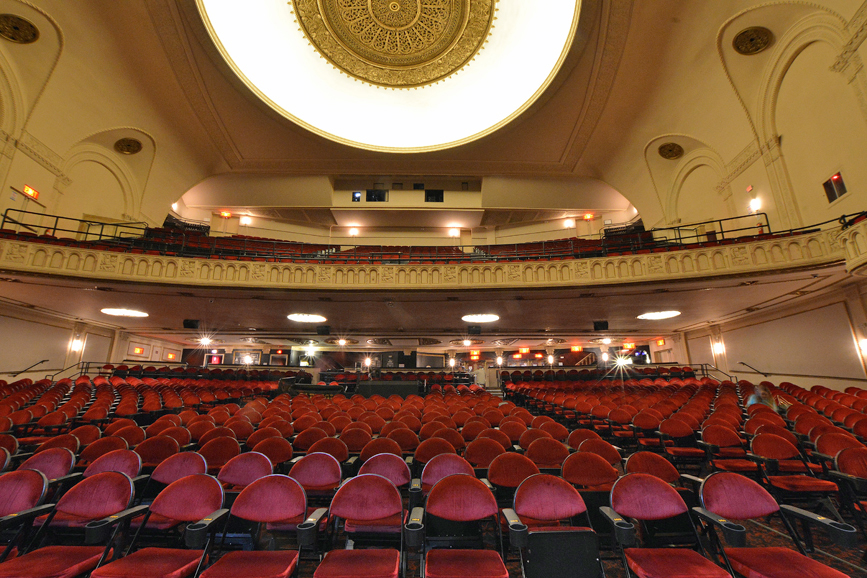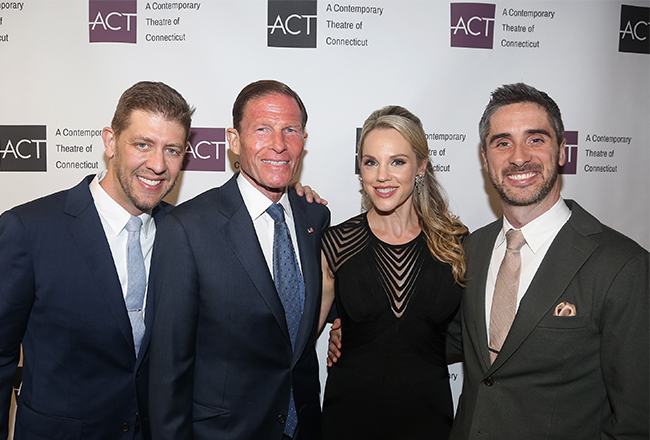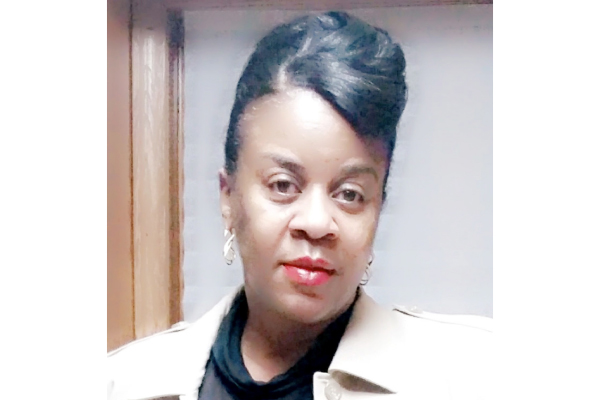Having reached the winter of its discontent, live performance venues in the area are in the midst of once again offering live performances.
Whether they will do that with the help of federal aid remains something of an open question.
“They finally rolled it out, and it epically failed,” said Dan Levine, artistic director of the nonprofit ACT (A Contemporary Theatre of Connecticut) in Ridgefield.
The “it” in this case is the Shuttered Venue Operating Grant (SVOG) program offered by the U.S. Small Business Administration. As was notoriously the case with the first round of the Paycheck Protection Program, long wait times, confusion over the application process, and technical malfunctions left a bad taste in would-be applicants”™ mouths.

In fact, just hours after the SVOG portal went live on April 8, it was shut down in the face of overwhelming demand. It reopened on April 26, and the SBA reported that within its first 24 hours it had received 17,356 applications.
The program, administered by SBA”™s Office of Disaster Assistance, is set to provide over $16 billion in grants to closed venues. Eligible applicants can apply for grants equal to 45% of their gross earned revenue, with the maximum amount for a single grant award of $10 million. $2 billion is reserved for eligible applications with up to 50 full-time employees.
“It made the PPP process look like child”™s play,” Levine said. “When they reopened it we signed into a ”˜waiting room,”™ and were told something like ”˜There are 19,337 people ahead of you.”™”
“It was a confusing application and submission process,” said Bruce Wheeler, general manager of the Capitol Theatre in Port Chester. “But we got through it and now we”™re awaiting the results.”
Entities that experienced a 90% or greater gross revenue loss between April and December 2020 due to the pandemic are being given first priority, followed by those who suffered a 70% or greater gross revenue loss, and then those that lost 25% or greater.
Although the SBA originally said it would begin distributing the first-priority round of funds during the week of May 17, on May 21 it said it would actually start doing so the week of May 24, further adding to the confusion and frustration.
“Theaters and museums across the country are really relying on this money,” Levine said.
He estimated that ACT lost a little over $500,000 during the year-plus it was closed by Covid. Wheeler said “The Cap” lost roughly 90% of its revenue over the past 15 months.
 The nonprofit Westport Country Playhouse, which lost about $578,000 in 2019, ended up with a surplus of over $397,000 last year, said its managing director Michael Barker.
The nonprofit Westport Country Playhouse, which lost about $578,000 in 2019, ended up with a surplus of over $397,000 last year, said its managing director Michael Barker.
The theater was forced to cancel its entire 2020 season ”” which would have been its 90th ”” after originally postponing its opening from April to July.
“We spent the first month and a half just trying to figure out how to behave for what was then looking like an indefinite period,” Barker said. “Fortunately we received, not a surprising, but a humbling amount of support from our donors.”
The Playhouse turned to a virtual model, offering programs for free. “The willingness to pay for something this past year was pretty low,” he said. “But people got the idea of what online theater could be during the pandemic and embraced it pretty quickly.”
Now in the midst of bringing back the nine staffers it furloughed during the worst of Covid-19, the venue has announced a cabaret series inside its Jason Robards Theatre, with appropriate mask, distancing and cleaning protocols in place. The series opens on June 26 with Tony Award-winning Tonya Pinkins; presales were “very strong ”” we sold $7,000 worth of tickets in the first hour,” Barker said.
“Tiny House,” a play that was workshopped at the Playhouse in 2018, will take place June 29 to July 18, followed by the Pulitzer- and Tony Award-winning “Doubt: A Parable” Nov. 2 to 21.
Barker said the Playhouse was in a unique position when it came to discussing how to welcome live audiences back.
“We have two epidemiologists on our team,” he noted, which include Dr. Peter Marghella, who served in Gov. Andrew Cuomo”™s cabinet as the director of the New York State Office of Emergency Management, and Barker”™s brother Joseph, who is regional associate director for West Africa at the Centers for Disease Control and Prevention (CDC).
Barker said the nonprofit plans to eventually return to 100% capacity once the Covid incidence rate of less than 5 per 100,000, and declining, is reached.
At ACT, “we lost a ton of money when we had to cancel (the 2020 season) and start refunding,” Levine said. “We were just starting our third season when the pandemic hit, so we had no endowments, built-in sponsors or donors yet, and we were still finding our audience.”
Thanks in part to a pair of PPP loans ”” the wait for the SVOG funds continues ”” the theater live-streamed the play “The Last Five Years,” a two-hander featuring Levine and ACT Executive Director Katie Diamond, in October; a collaboration with musical theater/composer Stephen Schwartz, “Snapshots,” featuring songs from the likes of “Wicked,” “Godspell” and “Pippin,” which streamed through February; and produced a concert version of “Into the Woods” with the Ridgefield Symphony Orchestra. A sale of the latter to on-demand digital streaming media company BroadwayHD helped the production more or less break even, he said.

Levine is now considering three shows to open ACT”™s next season in October. “It won”™t be a huge musical like ”˜Into the Woods”™,” he said. “If you have something that has 20 actors and 20 musicians and then, ”˜Oh my God, there”™s a variant,”™ you”™re done. So I”™ll be choosing a midsize musical instead.”
Meanwhile, the Capitol Theatre has yet to return to live acts; instead, it has relied on renting out its space for parties and offering merchandise for sale on the sidewalk outside.
Booking TV and movie shoots, which the theater has done in the past, became a higher priority, Wheeler said. “Normally we only sell windows of time, because we”™re doing shows a few times a week,” he said. “But we put the word out to the scouts that we were available. That and the merchandise sales helped keep the cash flow going.”
The Capitol”™s last show was on March 7, 2020; a few concerts that were held on its stage before an empty auditorium have subsequently been livestreamed.
At the moment the theater is looking to invite fans back on Oct. 8 and 9 with Umphrey”™s McGee. “A lot of acts are still not looking to play live yet, at least not indoors,” Wheeler said. “Plus so many shows have been rescheduled, and then rescheduled again when Covid levels changed, and then rescheduled again. They don”™t want to have to keep doing that to their fans and ticketholders.”
Meanwhile, venues ranging from Mohegan Sun to Ridgefield”™s Prospector Theater to the Palace Theatre in Stamford have or are in the process of bringing back live performances in Connecticut; as are the Tarrytown Music Hall, Levity Live in West Nyack, and the Bedford Playhouse in Westchester.
The show, as they inevitably say, must go on.
“I”™m an optimistic guy, or I wouldn”™t work in the arts,” Barker said. “I see us as in the seventh inning ”” we can see the end of the game, and we”™re winning.”






















